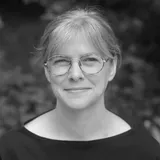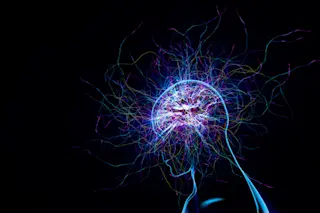One of the most difficult problems in neuroscience and philosophy is the study of consciousness. How does consciousness arise from physical matter?
In a 1995 paper, philosopher David Chalmers dubbed this question "the hard problem." The "easy" problem, he said, is figuring out how the brain does things like see, learn, think and make decisions.
While not exactly easy, at least these questions can be approached scientifically and, given the right techniques and technology, might eventually be solved. The "hard" problem, according to Chalmers, is figuring out why and how, when we see, learn, think and so on, we have a subjective experience.
Some experts think we're getting close to solving that problem. Others think it might never be solved.
Kristina Krasich is a neuroscientist at Elon University and a two-time winner of the Neurophilosophy of Free Will World Wide Competition. Krasich says there has been considerable progress in recent ...















